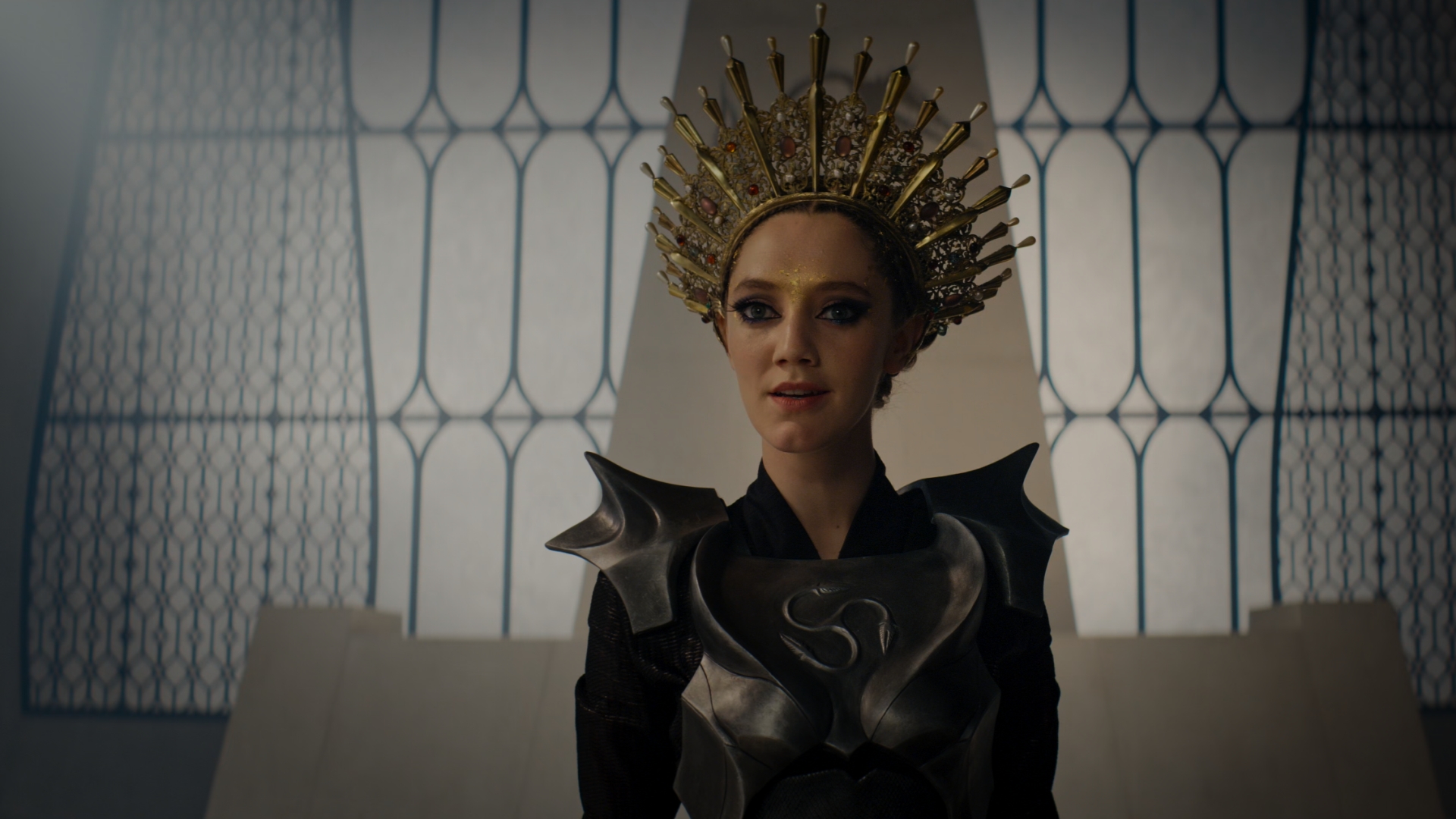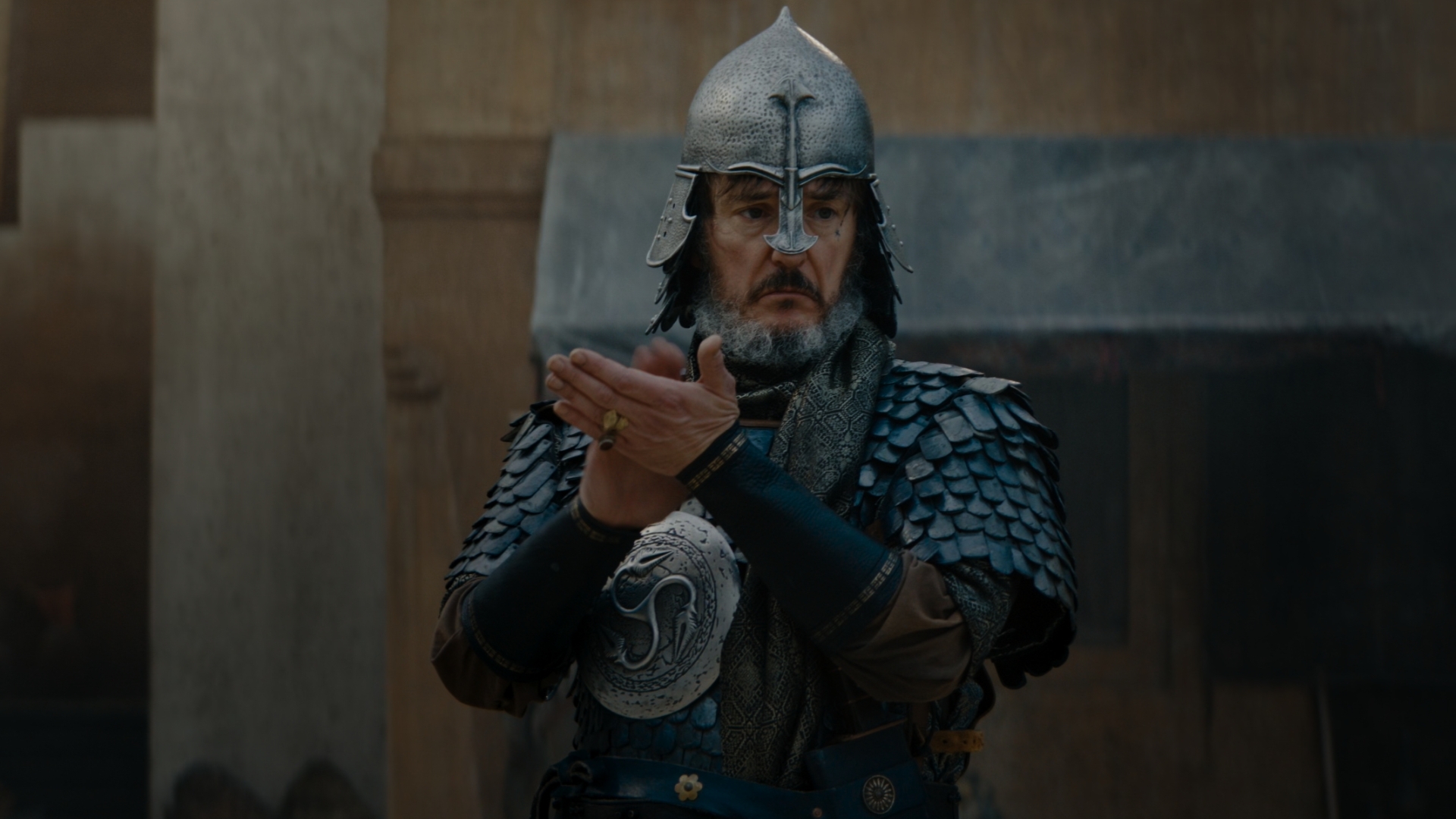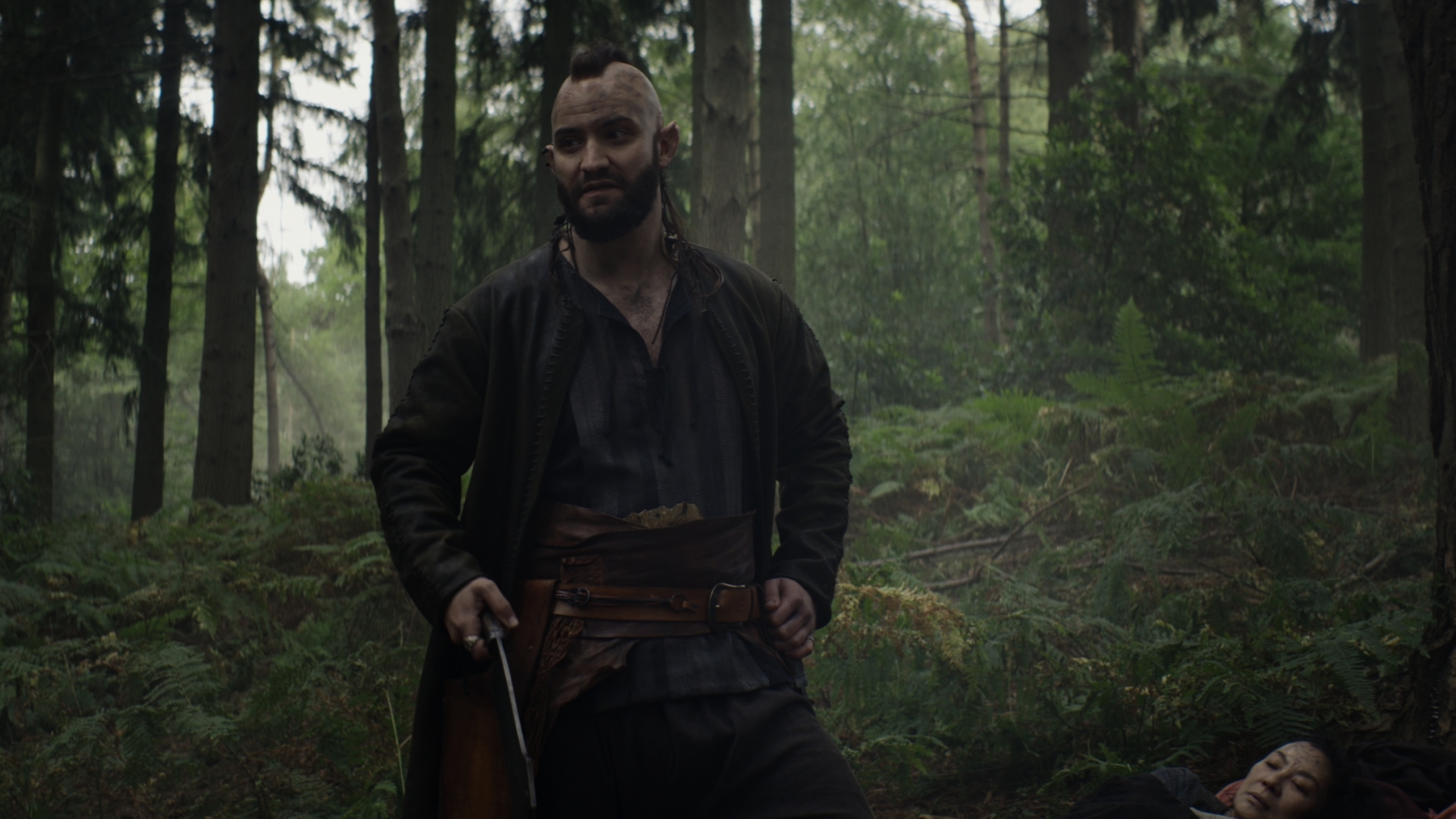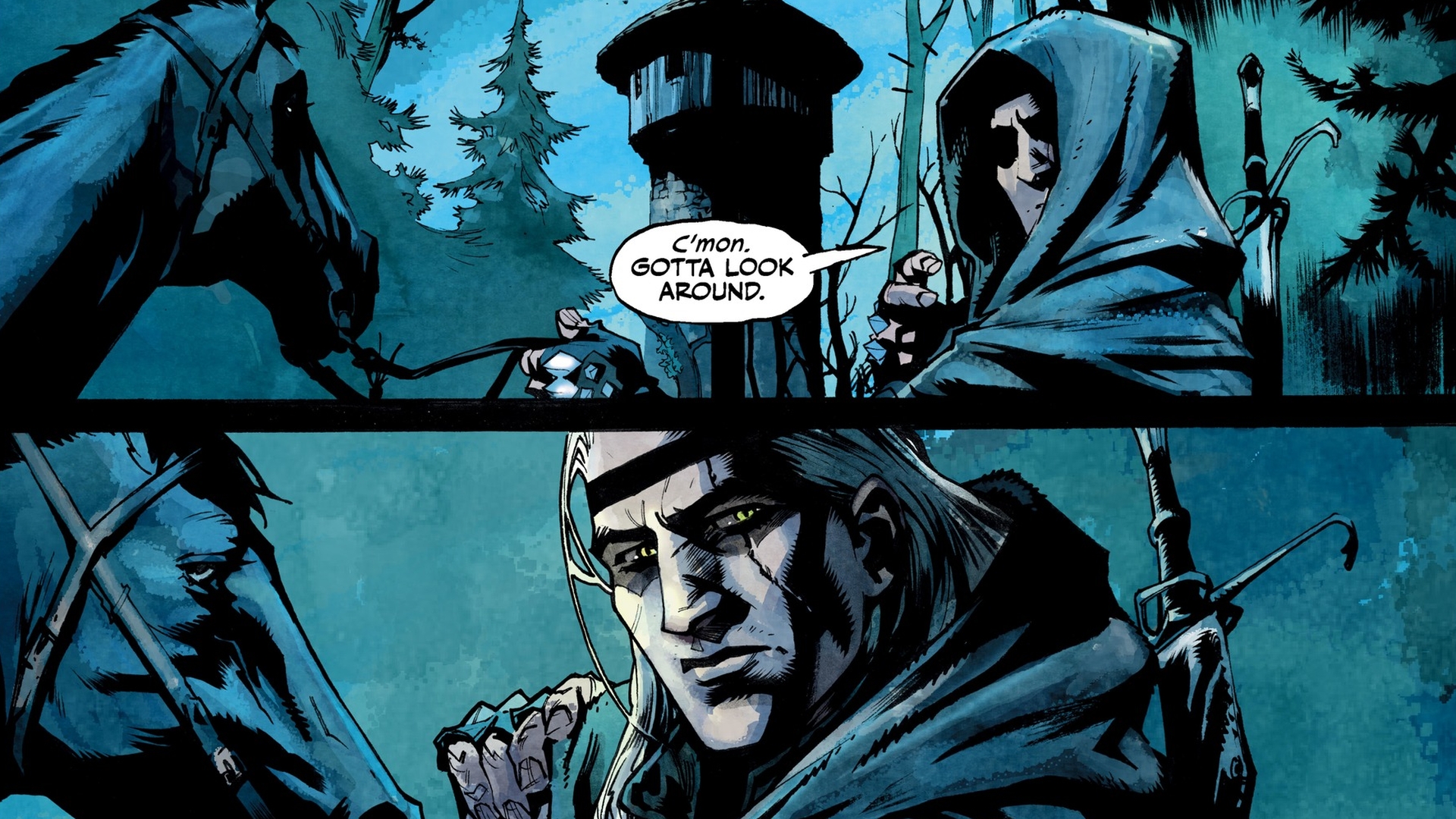Blood Origin shows the Witcher series isn't interested in winning back hardcore fans
The four-episode prequel diverges even further from the books.

Spoilers for the first two seasons of The Witcher as well as prequel series The Witcher: Blood Origin ahead.
The second season of Netflix's Witcher series made even more dramatic changes to the original stories than the first. It reinterpreted characters, killed one off, added whole new concepts like the idea Ciri's blood could be used to make new witchers, and basically took a free hand to the accepted Witcher lore. Which was, to put it mildly, a bit controversial.
Vocal fans of the original books now haunt every discussion of the show on the internet to lament this "butchering". The prequel series, Blood Origin, didn't do anything to win them back. It likewise took a hammer to the established canon, making changes to the history of the Continent, what we know about where witchers come from, and the backstory of characters we've met at later points in the saga.
Which is not to say it's awful. Blood Origin is a straightforward riff on Seven Samurai and every story about a band of heroes coming together for a dangerous mission, with a few knowing nods to the fact it's playing a familiar tune. In a framing sequence where the story's told to Jaskier the bard, he sighs, "A bunch of warriors join forces to fight against all odds? It has been done to death." Within the story, the villainous Sage Balor (played by Lenny Henry) believes that seven warriors of destiny are a threat precisely because that sounds like a legend just waiting to happen.
Of those seven the highlights are Meldof, the dwarf who talks to a hammer she's named Gwen, and a cleaver-wielding elven badass with a mohawk nicknamed "Brother Death". Michelle Yeoh elevates some otherwise ordinary dialogue and is mostly there to be amazing in the fight scenes. Beyond them, Dylan Moran is clearly having an excellent time as a mercenary leader called Uthrok One-Nut.

It's far from great, though. Potentially interesting characters are sidelined in favor of two boring protagonists who waste endless time with scenes like their predictable Refusals of the Call. The elves don't seem all that elfy, their culture, settlements, and beards all the same as human ones we've seen in the main series set over 1,000 years later. The monsters look iffy, and not even Lenny Henry can make a bad guy whose only motivation is simple jealousy interesting.
So yeah, it's fairly middling. Four episodes of basic fantasy action with some swearing and occasional flashes of Joey Batey as Jaskier to remind you it's The Witcher. But nothing can be middling on the internet, and certainly not anything related to The Witcher, which has been caught up in one of the daft fandom riots that make it exhausting to be part of any conversation about popular culture online.
The biggest gaming news, reviews and hardware deals
Keep up to date with the most important stories and the best deals, as picked by the PC Gamer team.

Henry Cavill's departure from the show has become a mythic event of its own. According to this legend, the Noble Ascended Fan tried his best to protect the holy canon of Andrzej Sapkowski's original text, but was defeated and finally driven off by the evil Netflix writers who butchered it because they secretly hate the books (even the showrunner who fought to get the show off the ground in the first place). This version of events relies on a lot of assumptions, like that Cavill's comments about wanting to bring "a more book-accurate Geralt to the screen" tell the entire story.
Blood Origin plays even faster and looser with "the lore" than the main series. The elves hastily assemble a prototype of the witcher-making Trial of the Grasses before the human mages credited with creating witchers in the books and games, Ciri's blood is given a new origin, and the backstories of plane-hopping elf Avallac'h and Eredin, leader of the Wild Hunt, are rewritten.

For these sins, Blood Origin has ended up with an audience score of 13% on Rotten Tomatoes, which is even lower than the user rating of Netflix's widely disliked Resident Evil series. There was so much salt and ranting about Blood Origin on Reddit that r/netflixwitcher, a subreddit that was already created to be a "respectful, inclusive" place for discussing the show away from the toxicity of other Witcher forums, had to spin off another, more heavily moderated "drama-free" subreddit.
The idea of any work of fiction presenting a consistent canon that can never be deviated from without setting off an uprising is always a bit silly, but especially in the case of The Witcher. The early short stories were clearly being made up as Sapkowski went along and have plenty of inconsistencies regarding the setting and Geralt himself. The last book, Season of Storms, adds so many more contradictions it seems like he's deliberately messing with readers who care about these things.
Meanwhile, Dark Horse Publishing has provided hardcore fans with an adaptation to latch onto. Most of its Witcher comics made in collaboration with CD Projekt have presented versions of Geralt, Ciri, and the rest who resembled their videogame incarnations. But in 2022, Dark Horse published an adaptation of The Grain of Truth—an early Witcher short story that's broadly a take on The Beauty and The Beast—that's much more faithful to the books. Geralt even has the leather headband Sapkowski describes him as wearing, at least until Yennefer calls it "pretentious" and makes him take it off.

While you could quibble about whether Geralt should have that scar over his eye at this point in his career, the comic's quite faithful to the book version of events and characters. Is it any good, though? It's kind of redundant if you've read the story, a bit middling compared to the more playful Witcher comics like Curse of Crows. But nothing can just be middling on the internet, and certainly not anything related to The Witcher.

Jody's first computer was a Commodore 64, so he remembers having to use a code wheel to play Pool of Radiance. A former music journalist who interviewed everyone from Giorgio Moroder to Trent Reznor, Jody also co-hosted Australia's first radio show about videogames, Zed Games. He's written for Rock Paper Shotgun, The Big Issue, GamesRadar, Zam, Glixel, Five Out of Ten Magazine, and Playboy.com, whose cheques with the bunny logo made for fun conversations at the bank. Jody's first article for PC Gamer was about the audio of Alien Isolation, published in 2015, and since then he's written about why Silent Hill belongs on PC, why Recettear: An Item Shop's Tale is the best fantasy shopkeeper tycoon game, and how weird Lost Ark can get. Jody edited PC Gamer Indie from 2017 to 2018, and he eventually lived up to his promise to play every Warhammer videogame.

